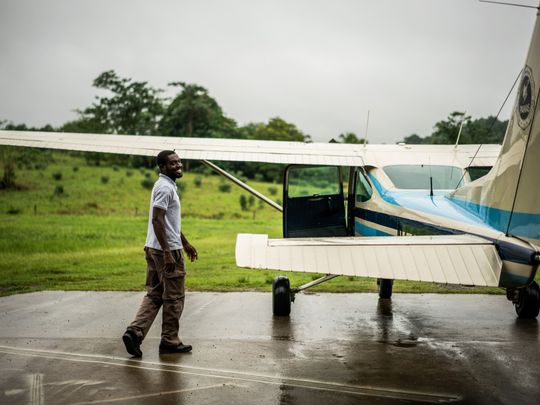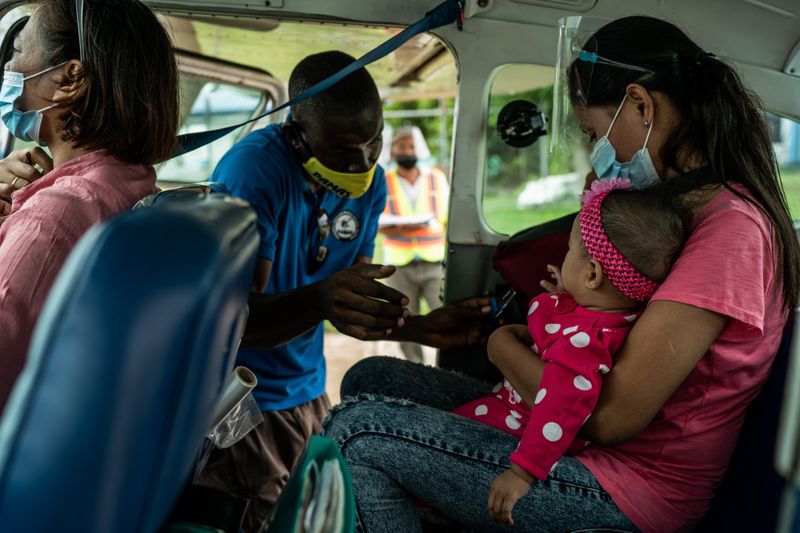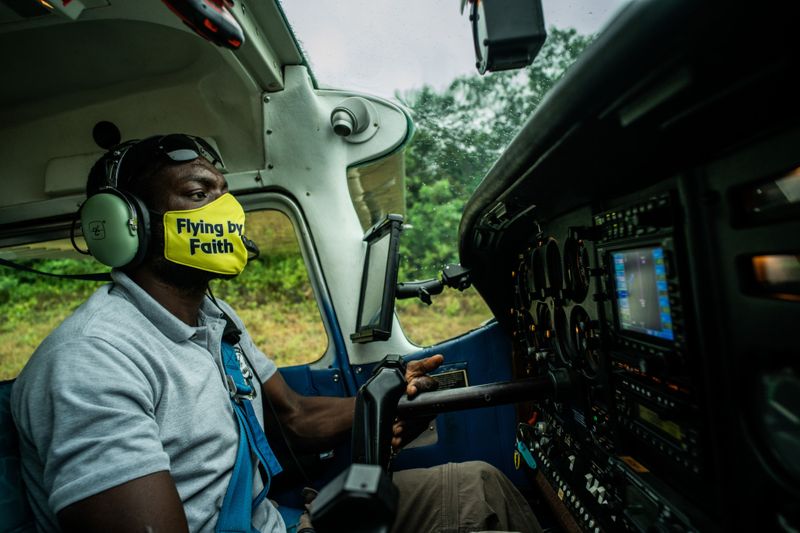
Manila: Seven months since the Philippines first declared a lockdown to curb the spread of the novel coronavirus, tens of thousands of Filipinos have been stranded across the country.
Limited public transportation and quarantine restrictions have made it almost impossible to travel - especially for those seeking medical help in far-flung towns with meagre health services.
Enter Davin Bennett, 34, a Jamaican missionary pilot who has ferried about 170 individuals needing medical evacuations across the northern Philippines on a small plane between April and mid-October. The job has given him a front-row view to births, deaths and many medical crises in between.
The most common cases are emergencies - vehicular accidents, patients in need of surgery and mothers with complicated pregnancies. He has also carried personal protective equipment, blood donations, the dead and a couple of victims of sexual assault who needed medical exams as evidence in court. The saddest ones, he said, are patients with terminal illnesses such as cancer - who, after treatment in cities, want to spend their final hours at home.
“At least,” said Bennett, “they got their dying wish to go home and see their family.”

Bennett, who was raised in poverty by a single mum in Jamaica, says he often sees his mother in the patients he transports. They relate to him, too; some of those he ferries are from the indigenous Agta, recognisable for their dark skin and curly hair, whom he says connect more easily with a Black pilot.
“The story behind each patient, passenger [and] supply run is really something that makes me say I love what I do,” he said.
On a recent trip, Bennett brought three mothers and their kids home to the coastal town of Palanan. The area is cut off from urban areas by the Sierra Madre, the longest mountain range in the country. It takes between one and two days to travel by boat and bus to the nearest capable hospital - but a flight cuts that to 30 minutes.

“Without medical evacuations, patients will die without seeing a specialist,” said Gay Atienza, one of a handful of physicians in the town. “Before, only rich people could cross the Sierra Madre. With [the missionary services], anyone can.”
Bennett’s organisation, the Philippine Adventist Medical Aviation Services, operates two other bases in the country and relies on donations. In his spare time, Bennett runs a Facebook page and YouTube channel, Flying by Faith, where he shares his experiences and the stories of his passengers.
Bennett flies about 20 hours a week, transporting an average of 12 to 15 patients. As a missionary, he is not paid, but he says the reward for his work is priceless. On witnessing the relief of a reunited family, or a new mother on a return trip home with a baby in her arms, he says, “that’s my paycheck right there.”








